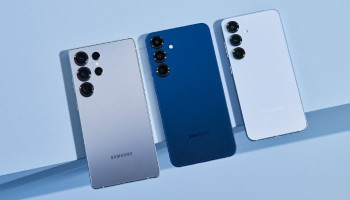
Microsoft has unveiled Phi-3, their tiniest language whiz yet. This mini marvel is a game-changer because it's small enough to power smartphone AI, potentially bringing powerful language smarts directly to your pocket.
Phi-3-mini, as it's affectionately known, boasts a remarkable 3.8 billion parameters, making it a formidable contender in the AI arena. Surpassing its predecessor, Phi-2 (released a few months earlier), Phi-3-mini has better abilities because of its larger training database and settings. These improvements help the AI to handle more complex questions and give precise answers.
One exciting thing about the Phi-3-mini is its potential to run on smartphones. Because it's small, this AI can work smoothly on mobiles, offering AI help wherever you go.
While experts still need to review the claims, enthusiasts can already try out Phi-3-mini on platforms like Azure and Ollama. Although the weights aren't out yet in the Hugging Face catalogue, people are eagerly awaiting them, adding to the excitement about this new release.
Read More: Top 7 AI image generators for 2024
Phi-3-mini has been trained on a massive 3.3 trillion pieces of data, showing its deep understanding of language and context. Each of its 3.8 billion settings represent a connection filled with knowledge, helping the AI handle complex conversations easily.
According to Microsoft's tests, the Phi-3-mini performs as well as much bigger models like the Mixtral 8x7B and GPT-3.5, proving its efficiency despite its small size. Designed for chatting, this AI does an excellent job of giving quick and accurate answers to many different questions.
As Phi-3-mini becomes part of the AI world, it joins other Microsoft products on Azure and Ollama. Although we don't have all the details about its open-source license yet, its potential for use in both academics and business is huge, similar to Grok AI's Apache 2.0 license.















